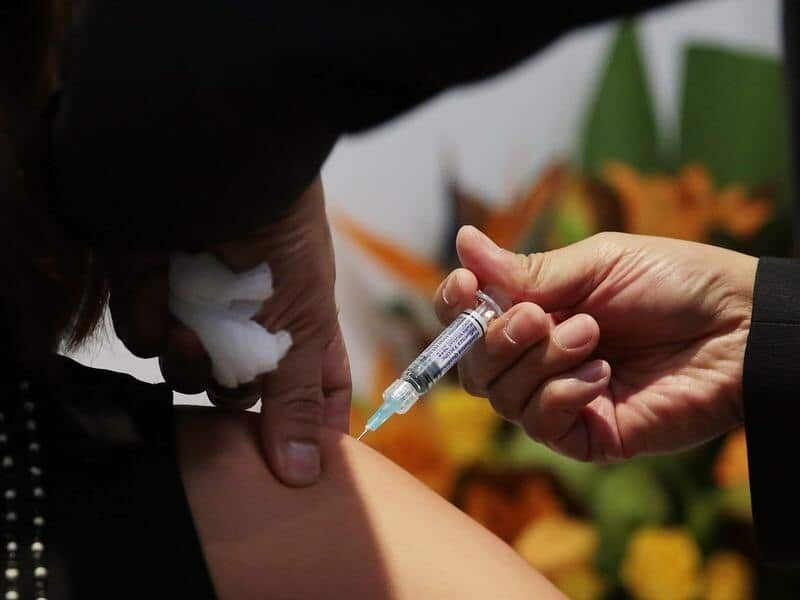Australians who work when unwell are more prone to injury, are less productive, risk passing on their illness to other employees and are more likely to make errors. To maintain a flu-free environment, here are tips from a water purification company, Waterlogic Australia on how to have a healthier workplace this winter season.
Tips for Staying Healthy this Winter
Stay hydrated
Staying well-hydrated during winter is as crucial as it is during the summer season.

(AAP) Source: AAP
Speak to your GP about getting a flu shot
Your GP can recommend the best time to get the flu shot based on your individual circumstances. Ultimately, being vaccinated at any time is better than not at all.

Sanofi will bring 400,000 flu vaccines to Australia over coming weeks to meet unprecedented demand. (AAP) Source: AAP
Eat your five a day (fruit and vegetable)
Vegetables and fruits contain phytochemicals, or plant chemicals. These biologically active substances can help to protect you from some diseases.

fruit and vegetable Source: Fruit and veg Flickr/Olearys (CC BY 2.0)
Keep moving
A daily workout releases feel-good, de-stress brain chemicals, gives you a break from the daily grind and helps ease depression. Exercise in winter can provide more benefit than exercise during the rest of the year.
Image
Cover coughs and sneezes with a tissue
Covering your mouth when coughing or sneezing is important because it cuts down the spread of germs.

Cough and sneeze etiquette Source: Arthur Mebius is licensed under CC BY-NC-ND 4.0
Wash or sanitise your hands frequently
Keeping hands clean is one of the most important steps we can take to avoid getting sick and spreading germs to others. Many diseases and conditions are spread by not washing hands with soap and clean, running water.

Global Hand washing Day 2018 Source: Pixabay
As half (51%) of Australians suffer from a cold or flu at least twice a year, employers should also see to it that the workplace is a safe environment for all the other employees.
Tips to maintain a healthy workforce
Provide hand sanitiser and anti-bacterial wipes
Providing a clean, hygienic workplace is important to keep the staff safe against germs. Washing alone is not enough to kill bacteria. Therefore, the use of hand sanitisers or antibacterial wipes is essential in preventing the spread of illness.
Image
Provide filtered water to keep people hydrated
Clean water is not only important for keeping employees hydrated while they’re at work, but poor water can have long-lasting effects on health, affecting employee productivity and hygiene.

Source: Getty Images
Use workload sharing
Employees who experience work-life balance are less stressed and may more effectively contribute when they are working.

Different generations working together Source: Getty
Reduce the ‘hero’ mentality
Break the work martyr mentality. It can increase stress both in work and at home. An employee feeling stressed is prone to illness.

Employees of Dai-ichi Life Insurance Co. get ready to leave their office in Tokyo at 3 p.m. on Feb. 24, 2017, Source: AAP
Send sick people home
If sick employees come to work they run the risk of spreading their cold or flu virus which can have an impact on the ability to run a particular department or operation. Creating an encouraging environment means employers have to communicate proactively to all the employees that if they are sick it’s okay to stay home.

What goes up must come down, and that includes the protection the flu vaccine offers against influenza. Source: Irina Bg/Shutterstock
Enabling people to work from home
Working remotely is beneficial to both parties. Being confined to an office can be stressful. Stress can impact an employee's quality of work. Any opportunity for reducing stress is not only good for the employee but also for the employer.

Makampuni yawaruhusu wafanyakazi kufanyia kazi nyumbani, kuzuia usambaaji wa coronavirus. Source: Getty
ALSO READ:
Share


